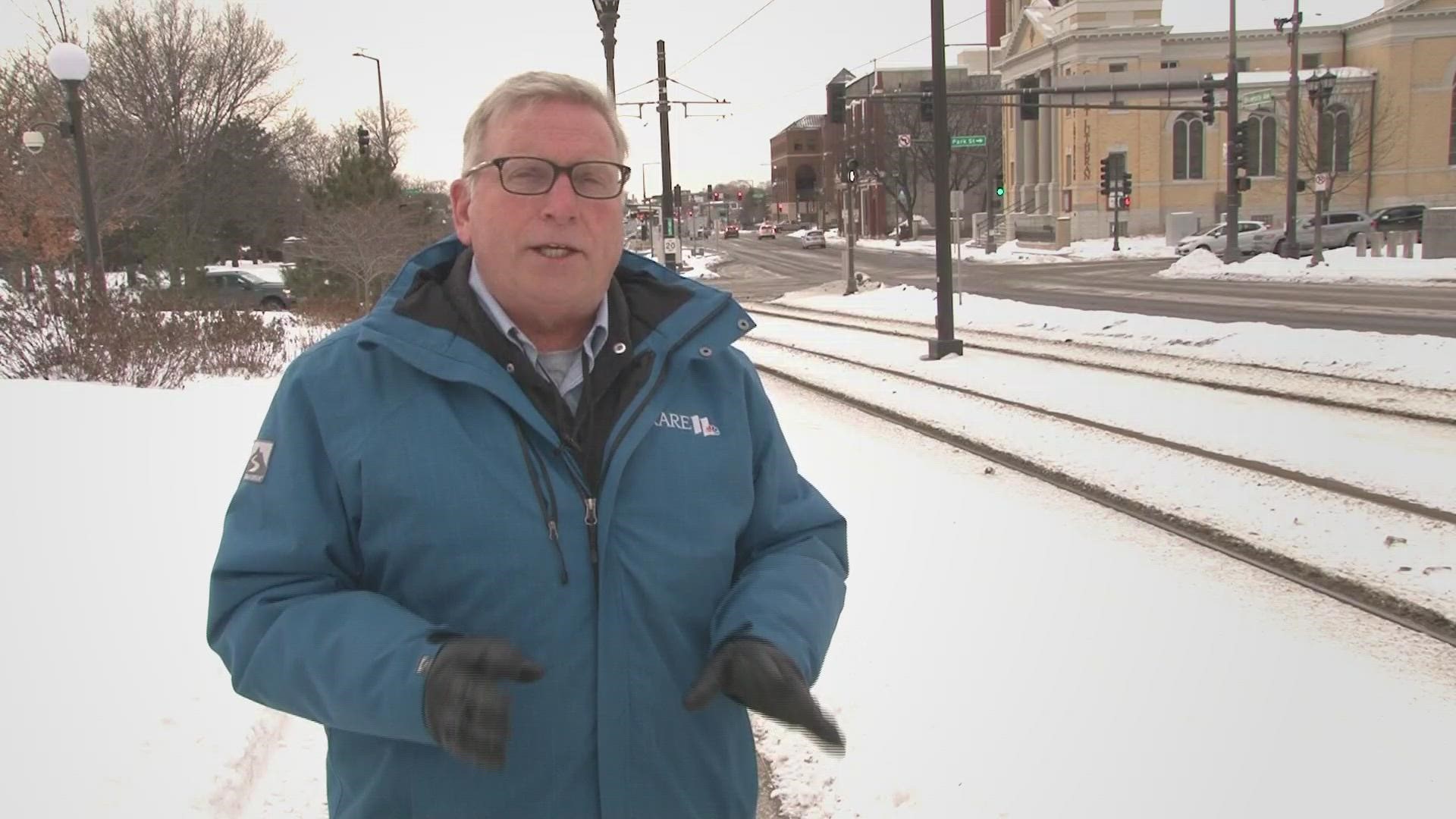ST PAUL, Minn. — Those hoping to take a train ride from downtown St. Paul to Eden Prairie will have to wait until 2027, and the cost of putting down that track will be substantially higher than originally anticipated.
The Metropolitan Council Board voted unanimously Wednesday evening to put another $210 million into the Southwest Light Rail Transit project that's already hit the $2 billion mark. They learned the total may go as high as $2.7 billion by the time it's finished.
"If you are for light rail, this is a hard thing. If you are against light rail, this is a hard thing," Met Council Member Judy Johnson told fellow council members.
"We are committed to multi-modal transportation throughout the region. Again, this was set into motion a long time ago. To not do anything would be extremely costly."
With the vote the panel agreed to let the staff negotiate final contracts with Lunda-McCrossan, the joint venture that's building the Green Line extension between Minneapolis and Eden Prairie. The Met Council and its partners of the project will need to raise at least $450 in new money to finish construction by 2025 and begin service in 2027.
The project was originally priced at $1.8 billion, making it the largest public works construction project in state history. Most of the tab being picked up by Hennepin County, Hennepin County Rail and transit grants from the U.S. Dept. of Transportation.
"We’re talking about the cost and we’re talking about the pain points, but this is a very long-term project that’s going to impact residents and the region for decades," Council Member Reva Chamblis remarked.
The project is breathtaking in both scope and complexity. It features 14.5 miles of track, 16 train stations, 29 new bridges, two train tunnels, five pedestrian tunnels, 130 retaining walls, and crash walls that separate freight lines from light rail lines in eight miles of shared corridors.
Nick Thompson, the Met Council's transit director, said many of the cost overruns are linked to unforeseen complications in tunneling through narrow spaces in the Kenilworth rail corridor between lakes in Minneapolis. There were also big ticket items added to the project after the original contracts were signed.
A station was added at Eden Prairie Town Center, and a more expensive retaining wall was required to create a buffer between the rail line and nearby buildings in the Kenilworth Tunnel.
The Burlington Northern Santa Fe railroad asked for the barrier protection wall as part of its safety agreement with the Met Council, which also added new costs.
Met Council Chair Charlie Zelle, a former state transportation commissioner, told lawmakers earlier Wednesday it's quite common for large public infrastructure projects to run into delays and cost overruns throughout the U.S. and the world.
"It's going to be more expensive, but when you think about the cost of some of the other light rail projects across the country we’re still under a lot of the other projects' cost by the mile."
Zelle and Thompson briefed members of the Minnesota Legislative Commission on Metropolitan Governance, who had asked for a progress report.
News of the cost overruns drew fire from Republicans who oppose light rail in general, and Minneapolis Democrats who are unhappy with the route Hennepin County leaders chose after years of study and community meetings.
DFL Sen. Scott Dibble said the Met Council should've listened more intently to those who warned about running a light rail line between freight lines and existing houses and other buildings.
"There were just a number of decisions made that could’ve been made differently had the Met Council opted to listen to folks who were telling them, giving them very important information."
GOP Rep. Jon Koznik of Lakeville argued that bus rapid transit is a better investment of taxpayer dollars because routes can be changes. He echoed Dibble's remarks that the Met Council shouldn't have been surprised by complications.
"There was well documented opposition, as to why you’re building a tunnel 20 feet under the water table and six inches away from another building!"
In addition to the jobs created building the project and the trains that will run on it, it has already spurred significant private development along the corridor.
"I’m just as frustrated as others at the delays and costs, but this is going to be a project that will benefit an entire region," Rep. Cheryl Youakim, a Hopkins Democrat, told fellow lawmakers.
"We're seeing investment in our area that wouldn't have been seen for decades to come."
Republicans argue that the same development would've happened anyway in response to market forces, but the location of the line caused that development to be concentrated along the line instead of other parts of the Twin Cities Metro.
GOP Rep. John Petersburg announced Wednesday he's co-authoring a bill with Minneapolis Democrat Frank Hornstein to put a pause on construction until there's another financial audit done. Hornstein chairs the House Transportation Committee and has been a strong opponent of the current route for the Green Line extension.
Watch the latest political coverage from the Land of 10,000 Lakes in our YouTube playlist:

